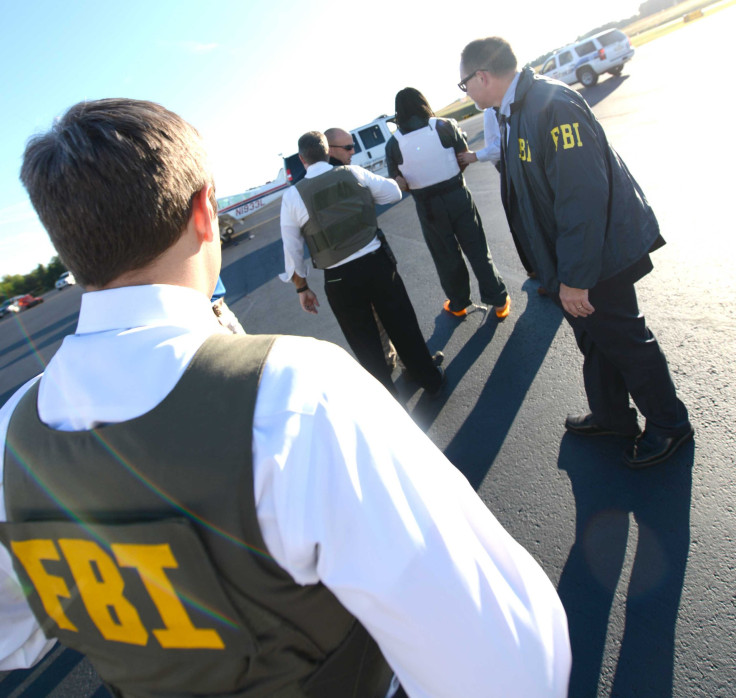Rolling Stone UVA Controversy: Jackie's Sexual Assault Story Made Rape Culture Worse

The national controversy over the accuracy of a Rolling Stone story on a University of Virginia gang rape could deter other victims from reporting sexual assaults and restrict how college administrators investigate potential cases of rape. A majority of sexual assaults already go unreported, in part because victims think people won’t believe them, as what happened with Jackie, the subject of the Rolling Stone article.
“We live in a culture where there are more social consequences for speaking publicly about having survived a rape than for actually raping someone,” said Rebecca Nagle, co-director of the Baltimore-based activist group FORCE: Upsetting Rape Culture. She added, “All the rape apologists in the U.S. just got a bunch of ammunition.”
Sexual assault is a serious problem on college campuses, where one-fifth of undergraduate women experience sexual assault attempts before graduation, according to data from the National Center for the Prosecution of Violence Against Women. Less than 10 percent of all rape accusations are false.
"Your average woman on a college campus seeing what happened and how it was handled is going to say, 'No way am I going to report anything,'" said John Foubert, a higher education professor at Oklahoma State University.
The University of Virginia is one of 86 schools being investigated by the U.S. Department of Education for possible Title IX gender-discrimination violations. Other colleges under examination include Princeton University in New Jersey, the University of California-Berkeley and Florida State University.
Campus rape culture was the focus of the Nov. 19 Rolling Stone story, which was initially lauded for raising awareness. But other media organizations, including the Washington Post, later found discrepancies in Jackie's account of allegedly being assaulted at a 2012 Phi Kappa Psi party. Among them was the fraternity’s finding that there were no chapter events scheduled the weekend in question and Jackie's confusion over her attacker's identity. In a letter of retraction Friday, Rolling Stone revealed the reporter chose not to contact any of Jackie's accused rapists out of sensitivity but now realized her trust had been "misplaced." The magazine later quietly edited the letter to indicate "these mistakes are on Rolling Stone, not on Jackie,” but the damage was done.
“This is one example of a problem that affects every single college campus and our culture in general,” said Marybeth Seitz-Brown, communications coordinator for the New York volunteer group Students Active for Ending Rape.
But determining the facts in sexual assault cases can be difficult. Schools face the challenge of protecting victims while trying to weed out untrue claims, a feat that requires concerted efforts to value both sides of every story.
At the University of Maryland, the first priority is ensuring the alleged victim is safe and healthy, said Title IX Officer Catherine Carroll. From there, trained investigators interview the involved parties, talk to witnesses and collect evidence. “We do not assume anything,” Carroll wrote in an email to IBTimes. “We rely on our procedures and the basic principles of fairness to ensure an impartial, prompt and thorough investigation. … We conduct due diligence into obtaining as much information as possible about the incident in question and then draft a report.”
San Francisco State University also carefully considers the accuser and accused throughout the investigative process, said Title IX coordinator Luoluo Hong. “We have been mindful of the vital need to have in place strong due process measures so that the rights of both the complainant and the respondent are honored,” she wrote in an email to IBTimes. To expand its efforts, the college plans to launch a new program in the spring that will automatically designate a trained advocate for students on both sides whenever an allegation arises.
Suzanne Cayer, the 19-year-old president of Revolution Against Rape at the University of Connecticut, said she thinks her sexual assault inquiry has been fair to both parties so far. “The Title IX investigators are absolutely fantastic,” she told IBTimes. “They’re definitely very sensitive.”
Not all victims feel the same. Often, campus administrators have a vested interest in quashing rape claims bad for publicity, said professor Foubert. They’re more concerned about their image than they are about justice. “Fraternities, colleges and universities don’t want to become known as ‘the rape school,’” he said.
Instead, sexual assault information sessions should be spread throughout the year to ensure they stay fresh in students’ minds, Foubert said. Students and community members should work with college officials to create targeted education initiatives.
For example, at the University of Texas at Austin, programming centers around the definition of consent, bystander intervention and healthy relationships, said Jane Bost, associate director of prevention and outreach services. “We’re making people aware that we’re taking this seriously on campus as a whole,” she said.
© Copyright IBTimes 2024. All rights reserved.












